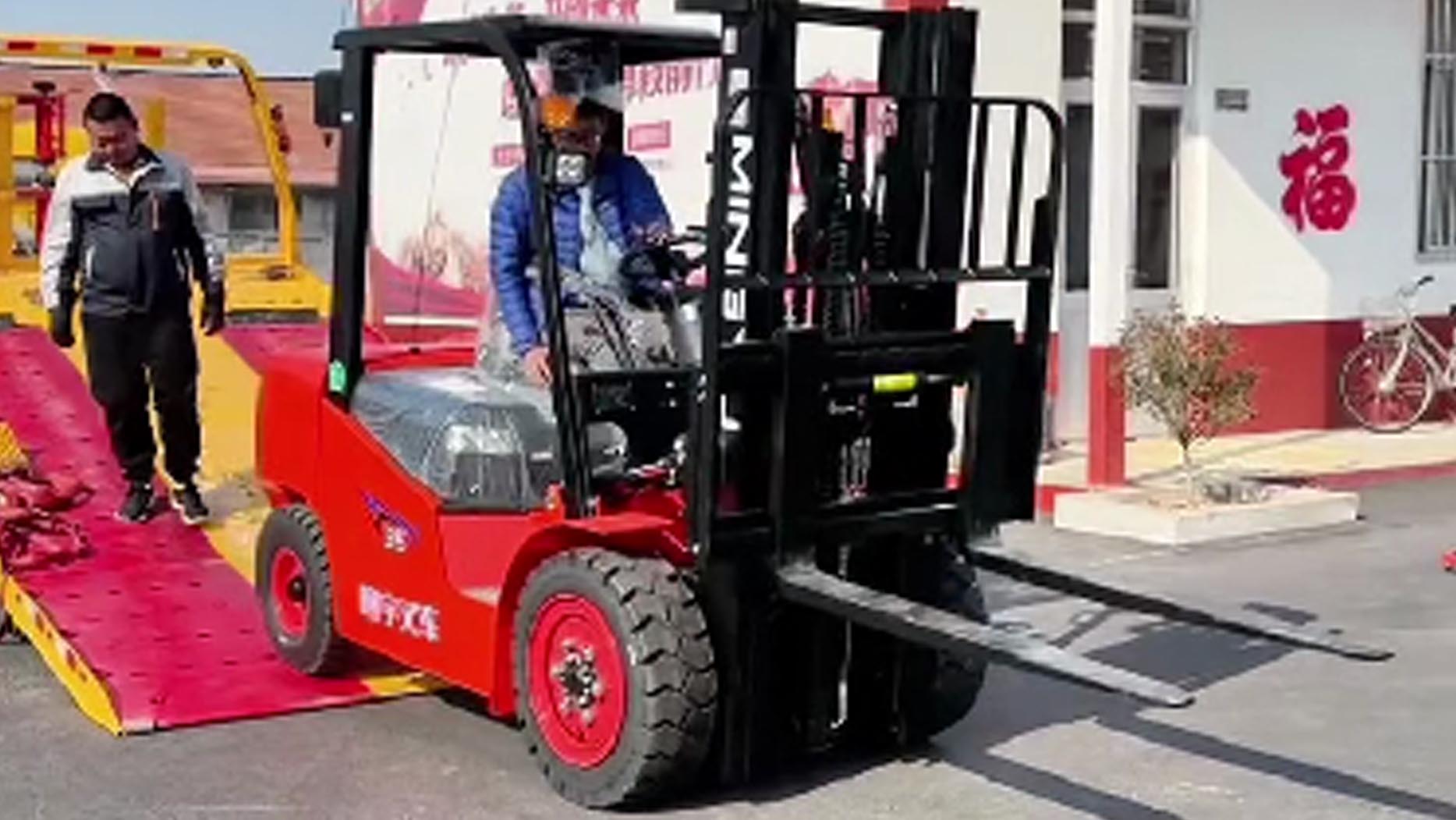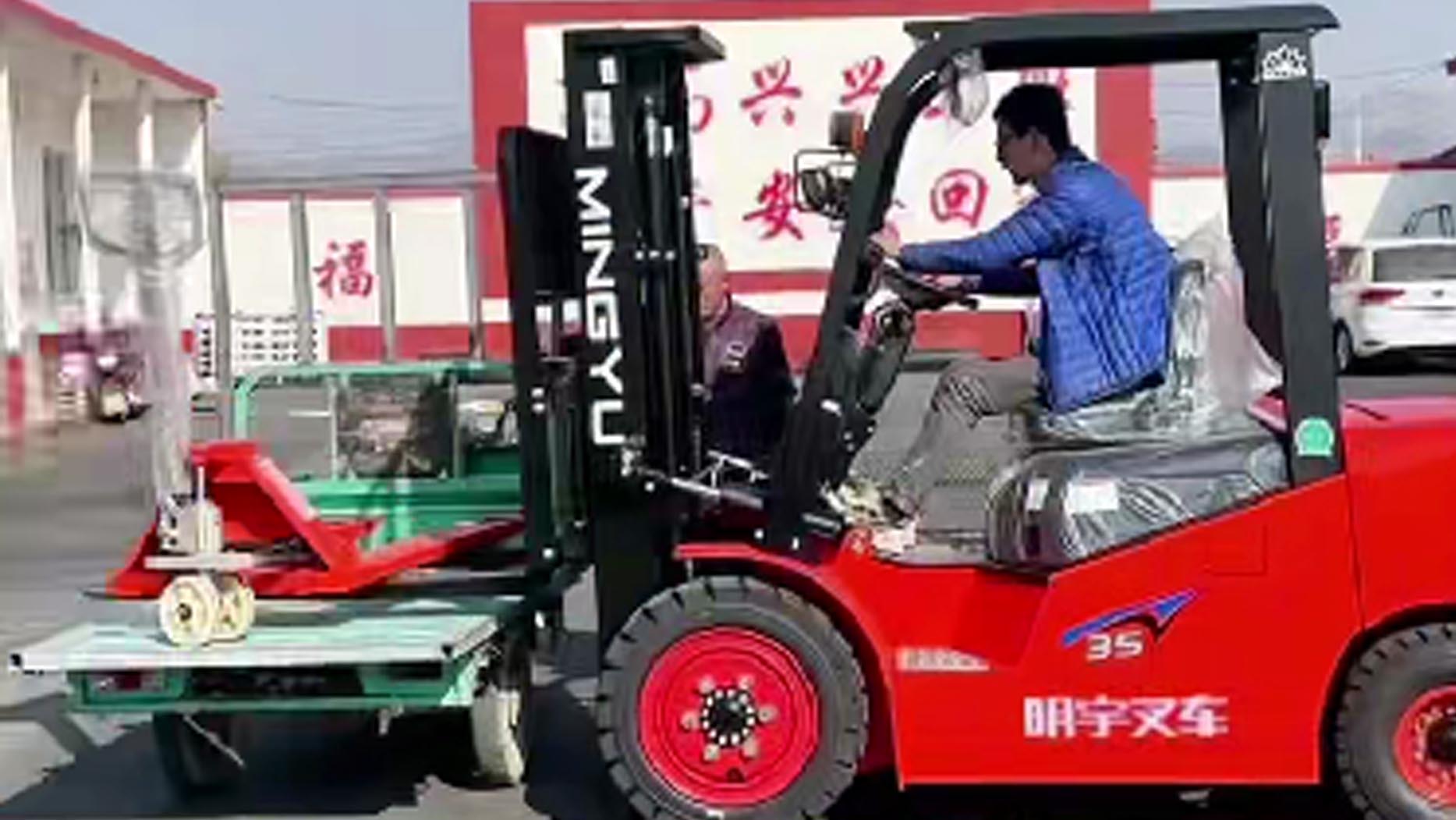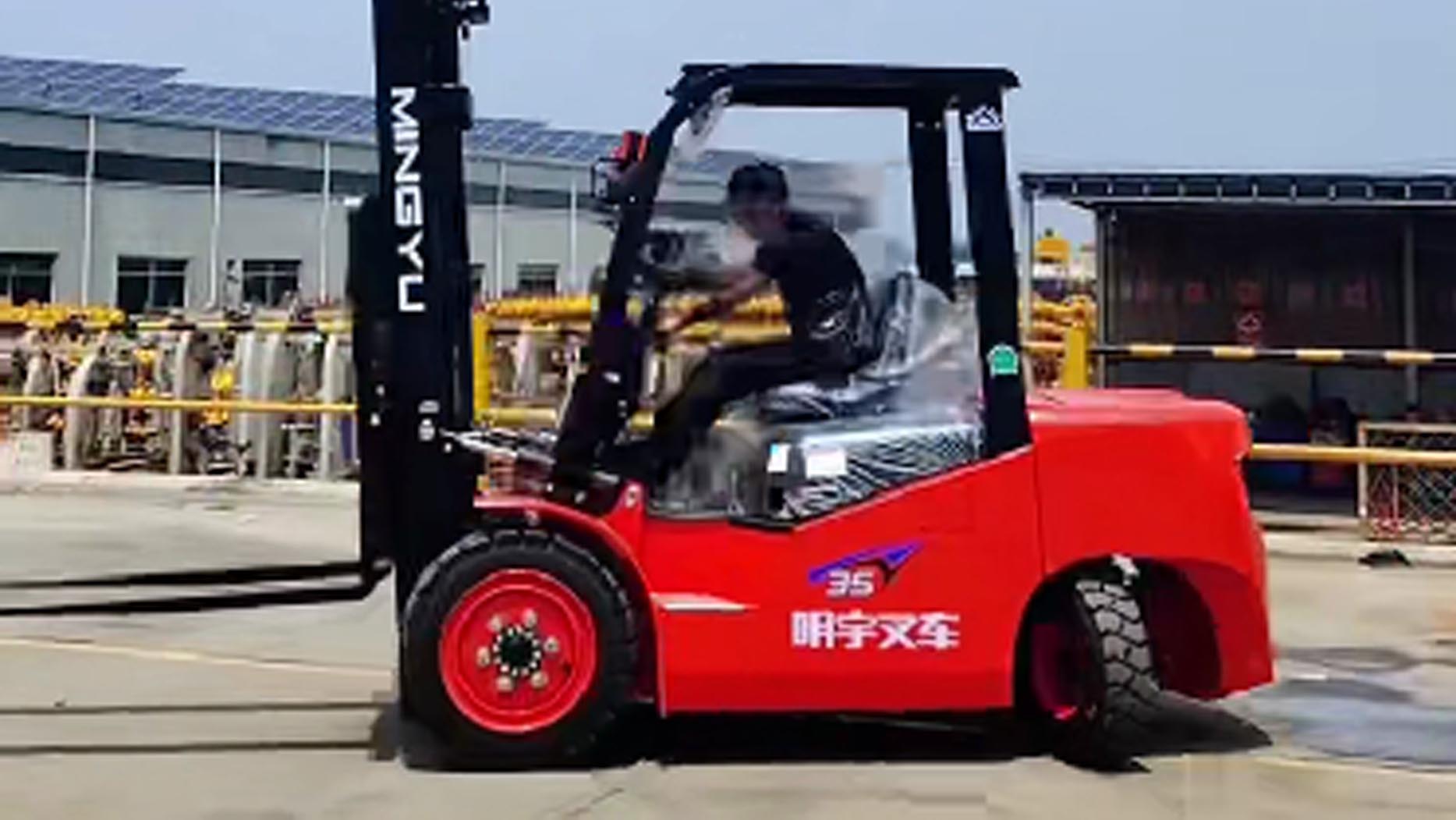Diesel forklifts are the workhorses of many demanding industries, valued for their raw power, robustness, and ability to operate continuously in challenging outdoor environments. From bustling construction sites to expansive lumberyards and busy ports, these machines deliver the heavy lifting and sustained performance that keeps operations moving. However, to ensure their longevity, reliability, and safe operation, diesel forklifts require a rigorous and consistent maintenance regimen. Neglecting this vital aspect can lead to costly breakdowns, reduced efficiency, and significant safety hazards.
Understanding the specific maintenance needs of a diesel forklift is paramount for any business relying on these machines. This goes beyond just fixing problems when they arise; it's about a proactive, preventative approach that extends the life of the asset, optimizes fuel efficiency, and minimizes unscheduled downtime.
The Cornerstones of Diesel Forklift Maintenance
Maintenance for a diesel forklift can be broadly categorized into daily operator checks, routine preventative maintenance (PM) at scheduled intervals, and less frequent, more intensive inspections and overhauls.
1. Daily Pre-Operation Checks (Operator Responsibility)
These brief but critical checks are performed by the operator before each shift to identify immediate safety concerns or potential issues.
Fluid Levels: Check engine oil, hydraulic fluid, coolant, and brake fluid. Top up as needed.
Fuel Level: Ensure sufficient diesel fuel for the shift.
Tires: Inspect for proper inflation, wear, cuts, or damage. Lug nuts should be secure.
Forks and Mast: Look for cracks, bends, or damage to forks. Check mast rails for debris and chain tension and lubrication.
Hydraulic Hoses and Cylinders: Inspect for leaks, cracks, or visible damage.
Brakes: Test foot and parking brakes for proper function.
Lights, Horn, and Safety Devices: Confirm all lights (headlights, brake lights, warning lights), the horn, and safety features like seatbelts and backup alarms are working.
Leaks: Visually scan for any oil, fuel, or fluid leaks under the machine.
Battery (Starting): For a diesel forklift, this refers to the starting battery. Check connections for corrosion and ensure it's securely mounted.

2. Routine Preventative Maintenance (PM) Schedules
These scheduled services are the backbone of diesel forklift longevity and efficiency. Most manufacturers provide specific hour-based or calendar-based intervals, whichever comes first. Common intervals include:
A. Every 200-250 Operating Hours (or Quarterly for lower use):
This is typically a light service focused on fluid checks, lubrication, and basic inspections.
Engine Oil and Filter Change: Essential for engine health. Diesel forklift engines produce more soot, making clean oil critical.
Fuel Filter Replacement: Prevents contaminants from reaching the fuel injection system.
Air Filter Inspection/Replacement: Crucial for efficient combustion, especially in dusty environments.
Lubrication: Grease all accessible points (e.g., mast pivots, steering components, axle pivots) to reduce wear and friction.
Cooling System Check: Inspect coolant level, hoses for cracks, and radiator for debris.
Tire Inspection: Detailed check for wear patterns, pressure, and damage.
Brake Inspection: Check for wear on pads/shoes, proper adjustment.
Mast and Chain Inspection: Look for wear, kinks, or corrosion on chains; check chain tension; lubricate chains thoroughly.
Hydraulic System Inspection: Check fluid level, inspect hoses, fittings, and cylinders for leaks or damage.
Visual Inspection: Thorough check of the entire machine for loose fasteners, cracks, or unusual wear.
B. Every 500-600 Operating Hours (or Bi-Annually):
This service expands upon the 200-hour check with more in-depth inspections and component replacements.
All 200-hour service items.
Transmission Fluid and Filter Check/Change: Depending on the transmission type and manufacturer recommendation.
Differential Fluid Check/Change: Inspect and top up/change gear oil.
Hydraulic System Filter Replacement: Maintains hydraulic system cleanliness and efficiency.
Spark Plug Inspection/Replacement: (Applicable to some dual-fuel or specific diesel forklift models with glow plugs.)
Drive Belt Inspection: Check tension and wear for belts driving the alternator, fan, etc.
Steering System Inspection: Check tie rods, linkages, and steering cylinder for wear or damage.
Electrical System Check: Inspect wiring, connections, fuses, and battery terminals for corrosion or damage.
Exhaust System Inspection: Check for leaks or damage. Modern diesel forklift models with DPF (Diesel Particulate Filter) or SCR (Selective Catalytic Reduction) systems will require specific maintenance for these components (e.g., DPF cleaning, DEF level check).
C. Every 1,000-1,200 Operating Hours (or Annually):
This is a comprehensive major service, often coinciding with annual safety inspections required by regulations.
All previous service items.
Hydraulic System Fluid Change: Full hydraulic fluid replacement along with filter changes.
Cooling System Flush and Fill: Replace coolant and inspect the entire system.
Brake System Overhaul: More thorough inspection of master cylinder, wheel cylinders/calipers, brake lines, and adjustment/replacement as needed.
Load Chain Replacement: Inspect and potentially replace mast load chains based on wear gauges and manufacturer recommendations (typically every 2,000-4,000 hours, or annually if wear dictates).
Mast Bearing Inspection: Check for wear and smooth operation.
Steering Axle Overhaul: Inspect wheel bearings, kingpins, and other steering components for wear.
Engine Valve Adjustment: (If applicable to the specific diesel forklift engine).
Fuel Injector Inspection: Check for proper spray pattern and operation.
Alternator and Starter Motor Inspection: Check brushes, bearings, and overall condition.
Load Testing: For larger forklift 3 ton diesel models and up, load testing may be performed to verify lifting capacity and stability.
 3. Special Considerations for Diesel Forklifts
3. Special Considerations for Diesel Forklifts
Several aspects of diesel forklift maintenance are unique to their power source and typical operating environments:
Emissions System Maintenance: Modern diesel forklift engines are equipped with complex emission control systems (e.g., Diesel Particulate Filters (DPF), Selective Catalytic Reduction (SCR) requiring Diesel Exhaust Fluid (DEF)). These systems need specific attention:
DPF Regeneration: Passive or active regeneration cycles are essential to burn off accumulated soot. If regeneration fails, the DPF may need manual cleaning or replacement, a significant cost.
DEF Level Check: For SCR systems, maintaining proper DEF levels is crucial for compliance and operation.
Fuel Quality: Using clean, high-quality diesel fuel is paramount. Contaminated fuel can clog filters and damage expensive fuel injection systems.
Operating Environment: Diesel forklifts often work in dusty, dirty, or wet conditions. This necessitates more frequent checks of air filters, radiator cleanliness, and lubrication points to prevent premature wear and overheating.
Turbocharger Care: If equipped with a turbocharger, proper shutdown procedures (allowing the engine to idle and cool down) are essential to prevent premature wear.
Battery (Starting) Maintenance: While not traction batteries, the starting battery still needs regular inspection for corrosion, proper voltage, and secure connections.
 Why Proactive Maintenance Matters
Why Proactive Maintenance Matters
Implementing a robust preventative maintenance program for your diesel forklift fleet yields significant benefits:
Maximized Uptime: Regular servicing catches minor issues before they become major breakdowns, ensuring your forklift diesel is operational when you need it most.
Extended Lifespan: Proper maintenance significantly prolongs the useful life of the forklift, maximizing your return on investment. This is especially important if you're considering selling a forklift second hand for sale, as a well-documented maintenance history commands a higher price.
Enhanced Safety: Worn brakes, faulty hydraulics, or compromised structural components are major safety hazards. PM ensures all critical safety systems are in top working order, protecting operators and others.
Optimized Fuel Efficiency: Well-maintained engines with clean filters and properly adjusted components run more efficiently, reducing fuel consumption.
Reduced Operating Costs: While maintenance has a cost, it's typically far less than the expense of emergency repairs, lost productivity due to downtime, and potential damage or injury.
Compliance with Regulations: Many jurisdictions require regular safety inspections for forklifts. A PM program helps ensure compliance and avoids fines.
Who Should Perform Maintenance?
While daily checks are the operator's responsibility, all scheduled preventative maintenance and repairs should be performed by qualified and certified forklift technicians. These professionals have the specialized tools, diagnostic equipment, and expertise required for modern diesel forklift engines and hydraulic systems. Many forklift dealerships, including those for brands like MYZG and MINGYU, offer comprehensive PM contracts tailored to fleet size and usage. For instance, maintaining a forklift 3 ton diesel properly requires specific knowledge of its engine and systems.
In conclusion, a diesel forklift is an invaluable asset for demanding material handling tasks, offering unmatched power and durability. However, its continued performance and safety hinge on a diligent and comprehensive maintenance program. From daily operator checks to rigorous scheduled services encompassing the engine, hydraulics, mast, and safety systems, every aspect of maintenance contributes to the machine's longevity and efficiency. For businesses considering a forklift second hand for sale or investing in a new one from reputable brands like MYZG or MINGYU, understanding and committing to this maintenance is the key to maximizing the value and performance of their powerful diesel forklift workhorse.
Post time:Jun.25.2025
